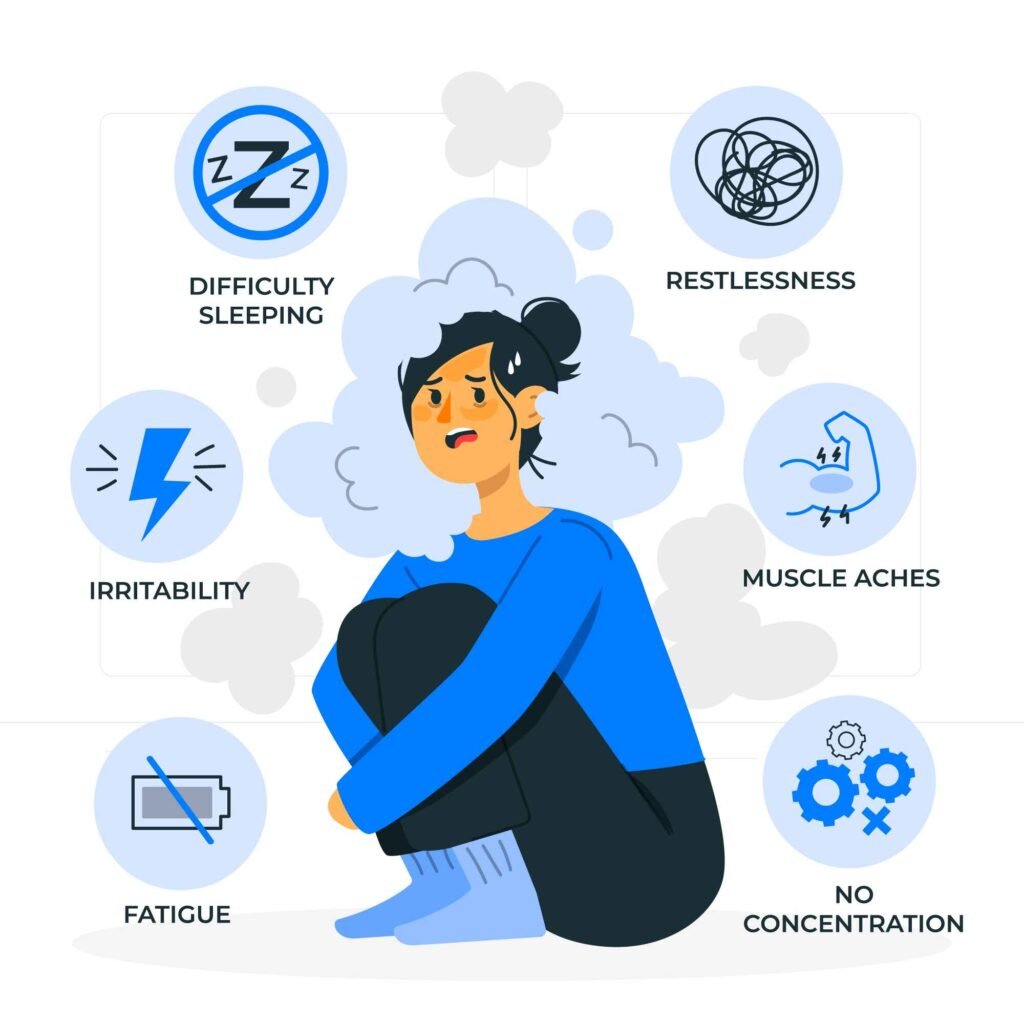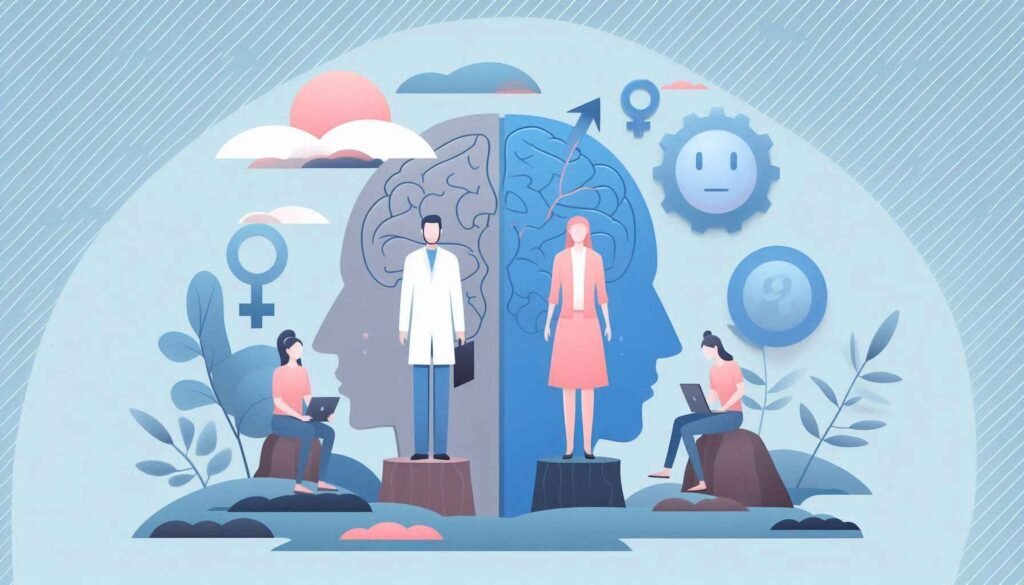
Personalized Nutrition and Wellness
Why Personalized Nutrition is the Future of Wellness
In a world where one-size-fits-all diets rarely work, personalized nutrition is revolutionizing how people achieve health goals. Whether you’re managing weight, improving energy, or addressing chronic conditions, a tailored approach to diet and wellness can lead to sustainable results. Unlike generic diet plans, personalized nutrition considers your unique genetics, lifestyle, and health needs to optimize your well-being.
What is Personalized Nutrition?
Personalized nutrition is an approach that designs dietary recommendations based on individual factors, such as:
- Genetic Makeup: DNA influences how your body processes nutrients.
- Health Conditions: Managing diabetes, heart health, or allergies requires customized plans.
- Lifestyle: Activity levels, sleep patterns, and stress impact your nutritional needs.
- Gut Health: Your microbiome affects digestion and nutrient absorption.
This tailored strategy ensures that your diet works for you, not against you.
The Science Behind Personalized Nutrition
Advances in nutritional genomics, or nutrigenomics, have unveiled how genes affect nutrient metabolism. For example:
- Some people metabolize caffeine faster than others, impacting energy levels and sleep.
- Variations in the FTO gene can influence how your body stores fat.
With DNA tests, health professionals can provide insights into the best foods and supplements for your body’s needs. This scientific approach makes personalized nutrition far more effective than generic guidelines.
Benefits of Personalized Nutrition for Your Wellness Journey
1. Achieve Sustainable Weight Management
Many people struggle with weight loss because traditional diets aren’t tailored to their bodies. Personalized nutrition helps by:
- Identifying foods that match your metabolism.
- Adjusting macronutrient ratios (carbs, proteins, fats) based on your body’s needs.
- Providing realistic, personalized meal plans to promote long-term adherence.
With a plan designed for your body, weight management becomes less frustrating and more effective.
2. Optimize Energy Levels
If you often feel drained, your diet might be to blame. Personalized nutrition can boost energy by:
- Identifying nutrient deficiencies, such as iron or B12.
- Recommending meal timing that aligns with your circadian rhythm.
- Balancing macronutrients to maintain stable blood sugar levels.
Say goodbye to energy crashes and hello to consistent vitality!
3. Prevent and Manage Chronic Diseases
Diet plays a pivotal role in preventing conditions like heart disease, diabetes, and obesity. Personalized nutrition helps by:
- Reducing inflammation with foods tailored to your body’s needs.
- Supporting heart health by managing cholesterol and blood pressure.
- Improving blood sugar control for those at risk of diabetes.
Personalized plans empower you to take proactive control of your health.
The Connection Between Gut Health and Personalized Nutrition
Your gut health is a critical factor in personalized nutrition and overall wellness. The trillions of bacteria in your gut—collectively known as the gut microbiome—play a key role in digestion, immunity, and even mental health. A personalized approach to nutrition considers your unique gut profile to improve well-being.
How Personalized Nutrition Supports Gut Health
When your gut is out of balance, it can lead to:
- Digestive issues like bloating, gas, and constipation.
- Weakened immunity, making you more prone to infections.
- Mental health challenges, as gut health affects serotonin levels.
Personalized nutrition focuses on foods that nourish your specific gut bacteria. This might include:
- Prebiotic-rich foods like onions, garlic, and bananas to feed beneficial bacteria.
- Probiotic foods like yogurt, kefir, and kimchi to introduce healthy bacteria.
- Anti-inflammatory foods to reduce gut irritation and support a balanced microbiome.
By understanding your gut health, you can eat in a way that restores balance and enhances your overall well-being.
Personalized Nutrition and Food Sensitivities
Food sensitivities can cause discomfort, inflammation, and fatigue. Many people live with food sensitivities without realizing it, often mistaking their symptoms for something else. Personalized nutrition can identify these sensitivities and eliminate guesswork.
Common food sensitivities include:
- Gluten (found in wheat, rye, and barley).
- Dairy (lactose or casein intolerance).
- Soy and legumes.
- Eggs or shellfish.
A personalized nutrition plan might include an elimination diet to pinpoint which foods are causing issues. This allows you to enjoy meals without the discomfort of bloating, headaches, or fatigue.
How to Start Your Personalized Nutrition Journey
1. Get a Comprehensive Health Assessment
The first step in personalized nutrition is understanding your unique health profile. This can include:
- DNA testing to analyze genetic predispositions.
- Blood tests to check for nutrient deficiencies and inflammation markers.
- Gut health tests to evaluate your microbiome composition.
These insights will form the foundation for a personalized plan tailored to your needs.
2. Work with a Nutrition Professional
While online tools and apps can provide basic insights, working with a registered dietitian or nutritionist ensures you get expert guidance. A professional can:
- Interpret test results accurately.
- Develop a sustainable meal plan.
- Provide ongoing support and adjustments based on your progress.
Investing in professional advice can make a significant difference in your wellness journey.
3. Track Your Progress
Personalized nutrition is a dynamic process. As you make dietary changes, track your progress by:
- Journaling your meals and symptoms.
- Monitoring energy levels, sleep patterns, and mood.
- Regularly updating tests and assessments to adjust your plan as needed.
This iterative process helps you stay on track and adapt to your body’s evolving needs.
Personalized Nutrition for Mental Wellness
Your diet not only affects your physical health but also your mental well-being. Personalized nutrition can play a significant role in managing mental health conditions like anxiety, depression, and stress.
Key Nutrients for Mental Wellness
- Omega-3 Fatty Acids: Found in fatty fish, walnuts, and flaxseeds, omega-3s support brain function and reduce inflammation.
- Magnesium: This mineral, found in dark leafy greens and nuts, helps calm the nervous system.
- Vitamin D: Low levels of vitamin D are linked to mood disorders. Get enough sunlight or include vitamin D-rich foods like eggs and mushrooms.
- Probiotics: A healthy gut microbiome can enhance mood and reduce anxiety.
Personalized nutrition ensures you get the right nutrients in the right amounts to support your mental health goals.
Myth-Busting Personalized Nutrition
Myth 1: Personalized Nutrition is Only for Athletes
Truth: Personalized nutrition benefits everyone, not just athletes. Whether you’re a busy professional, a parent, or someone managing a health condition, a tailored diet can improve your quality of life.
Myth 2: It’s Too Expensive
Truth: While some tests and services can be pricey, personalized nutrition doesn’t have to break the bank. Simple adjustments to your diet based on expert advice can be highly effective and affordable.
Myth 3: It’s Complicated to Follow
Truth: Personalized nutrition simplifies your diet by eliminating guesswork. Instead of following confusing trends, you get clear, actionable steps that work for your body.
The Role of Technology in Personalized Nutrition
Advancements in technology are making personalized nutrition more accessible than ever. Tools like:
- DNA Testing Kits: Companies like 23andMe offer insights into your genetic predispositions.
- Health Apps: Track your meals, exercise, and symptoms easily.
- Wearable Devices: Monitor your sleep, activity, and heart rate to fine-tune your nutrition plan.
These technologies empower you to take control of your health with data-driven decisions.
Personalized Nutrition for Different Life Stages
Your nutritional needs change throughout your life. Personalized nutrition helps you stay healthy by adapting to these changes, ensuring you get the right nutrients at every stage.
1. Personalized Nutrition for Children
Proper nutrition during childhood is essential for growth, development, and lifelong health. Personalized nutrition for kids focuses on:
- Meeting growth milestones with essential vitamins and minerals.
- Balancing macronutrients to support energy levels for active play.
- Identifying food allergies or sensitivities early to avoid health issues.
Tailoring a child’s diet helps build strong bones, boost immunity, and create lifelong healthy eating habits.
2. Personalized Nutrition for Teens
Adolescence is a time of rapid physical, emotional, and mental changes. Teens often experience:
- Hormonal fluctuations that affect mood and skin health.
- Increased energy needs due to growth spurts and activity levels.
- Risk of nutrient deficiencies like iron, calcium, and vitamin D.
A personalized nutrition plan for teens ensures they get the nutrients needed to support growth, improve focus, and promote overall wellness.
3. Personalized Nutrition for Adults
For adults, personalized nutrition focuses on:
- Maintaining energy levels for busy work and personal lives.
- Preventing chronic diseases like diabetes, heart disease, and obesity.
- Managing stress and mental health through mood-supporting foods.
By addressing individual needs, adults can optimize their health and wellness for a more balanced life.
4. Personalized Nutrition for Seniors
As we age, our bodies require different nutrients to stay strong and healthy. Personalized nutrition for seniors emphasizes:
- Maintaining bone health with calcium and vitamin D.
- Supporting cognitive function with omega-3 fatty acids and antioxidants.
- Managing digestion with fiber and probiotics.
Tailored nutrition helps seniors maintain mobility, cognitive function, and overall quality of life.
Common Personalized Nutrition Approaches
1. DNA-Based Nutrition Plans
DNA testing offers valuable insights into how your body processes nutrients. For example:
- Do you metabolize carbs efficiently, or should you go low-carb?
- Is your body prone to inflammation, requiring more antioxidants?
A DNA-based plan customizes your diet to your genetic profile, helping you achieve optimal health.
2. Blood-Type Diets
Some people find success with diets tailored to their blood type. According to this approach:
- Type O: Thrive on high-protein, low-carb diets.
- Type A: Benefit from plant-based foods and grains.
- Type B: Do well with a balanced diet, including dairy.
- Type AB: A combination of Type A and B recommendations.
Though not universally supported by science, some individuals report improved energy and digestion with this approach.
3. Metabolic Typing
Metabolic typing assesses how your body converts food into energy. The three common types are:
- Protein Types: Need higher protein and fat, fewer carbs.
- Carbohydrate Types: Thrive on plant-based, low-fat diets.
- Mixed Types: Require a balanced mix of carbs, proteins, and fats.
Understanding your metabolic type can help you eat in a way that fuels your body effectively.
Meal Planning Tips for Personalized Nutrition
1. Focus on Whole, Nutrient-Dense Foods
Regardless of your personalized nutrition plan, whole foods should be the foundation. Include:
- Fruits and Vegetables: Rich in vitamins, minerals, and antioxidants.
- Lean Proteins: Fish, poultry, beans, and tofu.
- Healthy Fats: Avocados, nuts, and olive oil.
- Whole Grains: Brown rice, quinoa, and oats.
Whole foods support overall health and reduce inflammation.
2. Plan Balanced Meals
A personalized diet should still aim for balance. Ensure each meal includes:
- Protein for muscle repair and satiety.
- Complex Carbohydrates for energy.
- Healthy Fats for brain function and hormone balance.
- Fiber for digestion and gut health.
3. Practice Mindful Eating
Personalized nutrition isn’t just about what you eat but also how you eat. Mindful eating helps you:
- Listen to hunger and fullness cues.
- Enjoy your meals without distractions.
- Improve digestion and reduce overeating.
Slow down, savor your food, and be present during meals.
Overcoming Challenges in Personalized Nutrition
1. Navigating Social Settings
Sticking to a personalized plan can be tough at social events. Tips to stay on track:
- Bring a healthy dish that fits your needs.
- Eat a balanced meal beforehand to avoid temptation.
- Communicate your dietary needs to hosts or restaurants.
2. Managing Busy Schedules
If you’re always on the go, meal prep can save you time and keep you on track. Try:
- Batch-cooking meals for the week.
- Preparing healthy snacks like fruit, nuts, and yogurt.
- Using meal delivery services that offer personalized options.
3. Staying Motivated
Personalized nutrition is a long-term commitment. Stay motivated by:
- Tracking your progress with a journal or app.
- Setting realistic goals and celebrating small victories.
- Reminding yourself of your why—whether it’s better health, more energy, or disease prevention.
Final Steps to Embrace Personalized Nutrition
1. Start Small
You don’t have to overhaul your diet overnight. Begin with small changes, such as:
- Swapping processed foods for whole foods.
- Identifying and eliminating trigger foods.
- Incorporating nutrient-dense meals a few times a week.
2. Listen to Your Body
Your body knows what it needs. Pay attention to:
- Energy levels after meals.
- How different foods affect your mood and digestion.
- Signs of improvement or discomfort as you adjust your diet.
3. Be Patient
Personalized nutrition is a journey, not a quick fix. Give your body time to adapt and heal. With consistent effort, you’ll notice positive changes in your health and well-being.
Unlock Your Best Self with Personalized Nutrition
Embracing personalized nutrition empowers you to take control of your health like never before. By understanding your body’s unique needs, you can make informed choices that lead to lasting wellness, vitality, and happiness.
Start your personalized nutrition journey today—and unlock the healthiest, happiest version of you!



